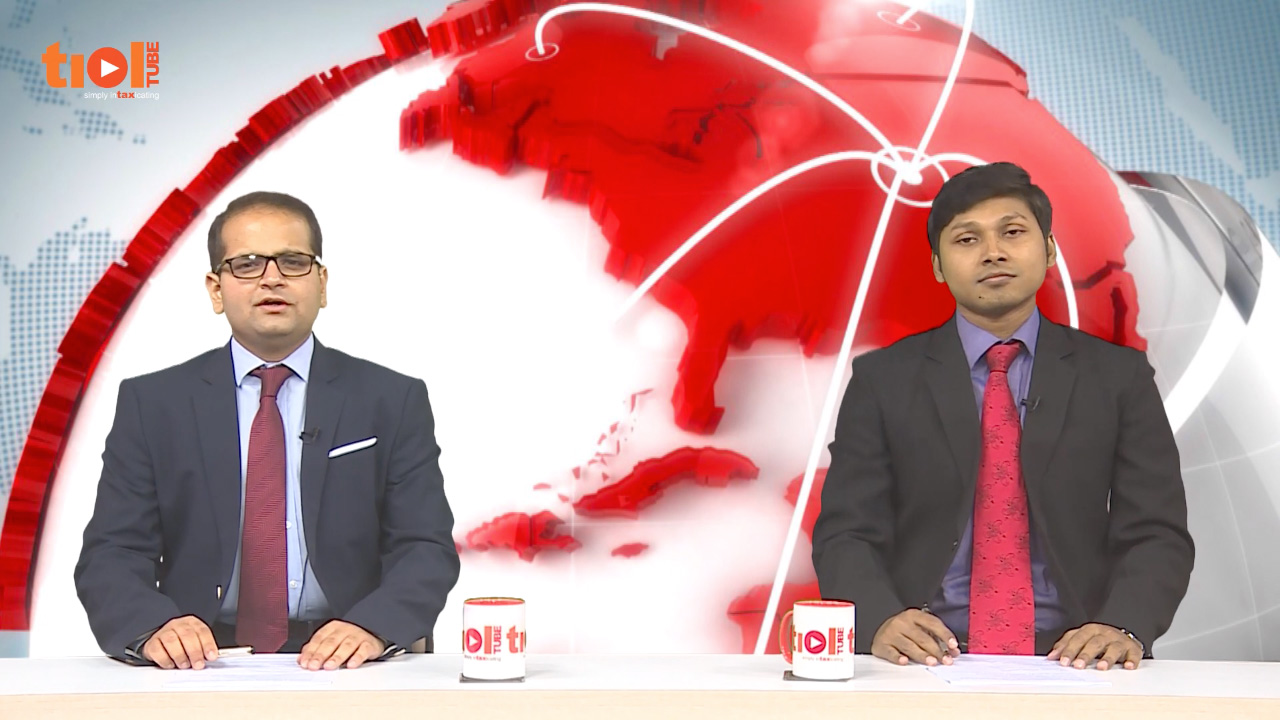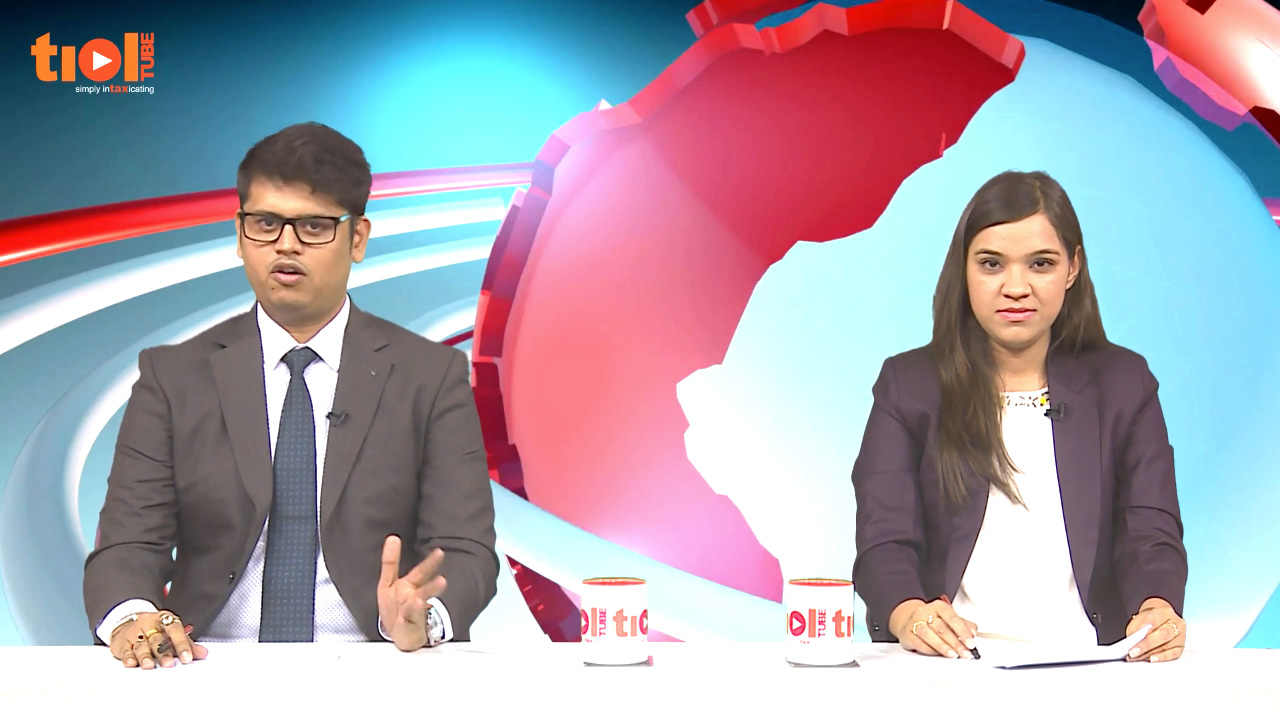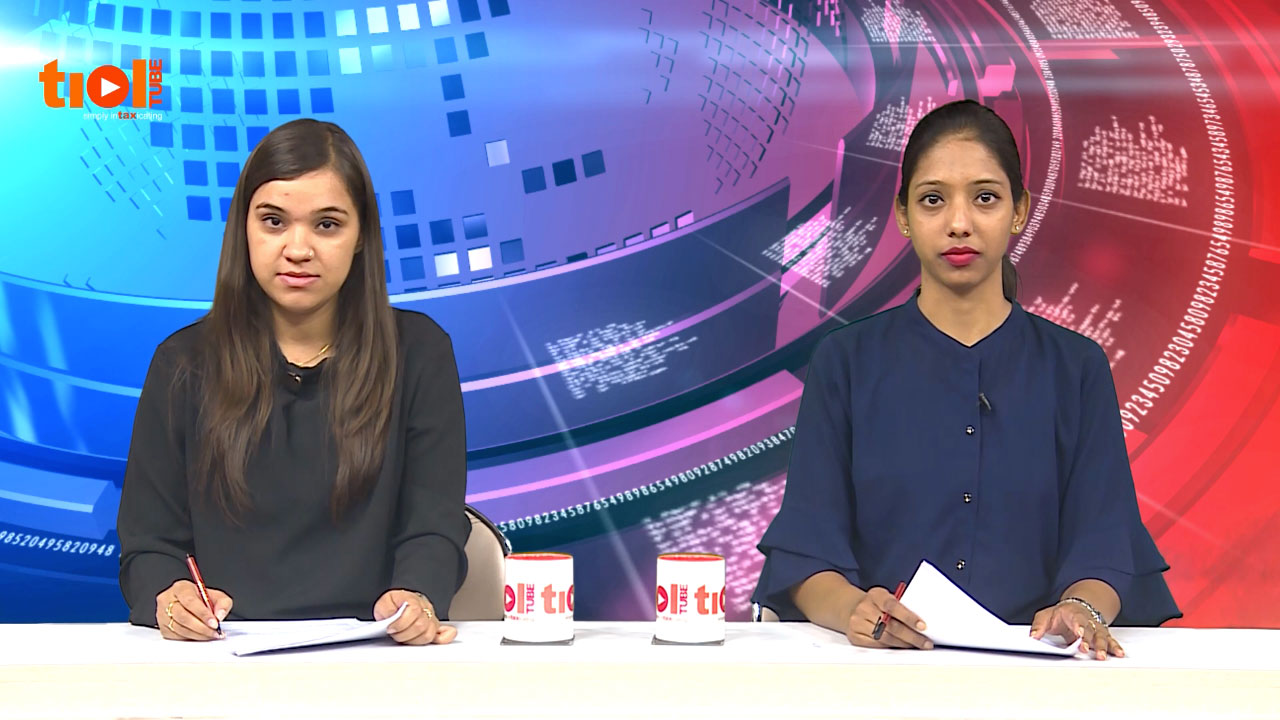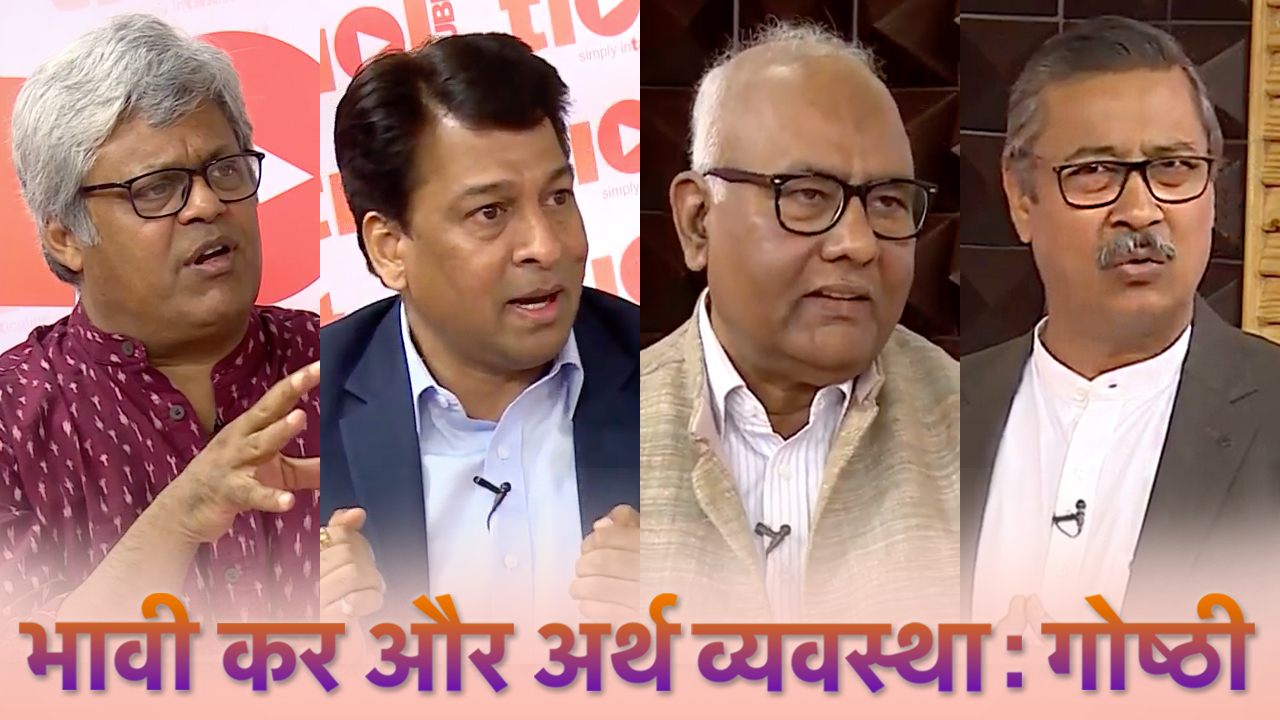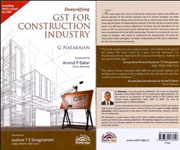|
SERVICE TAX
2019-TIOL-1497-CESTAT-DEL
Centre For Research and Industrial Staff Performance Vs CGST, CE & C
ST - The issue at hand is whether the assessee, who is registered with the Societies Registration Act, is liable to pay service tax on a special project under the Swaranjayanti Gram Swarojgar Yojana - The SGSY is a scheme sponsored by the Central Government & the assessee received funds from the Central Government to this end.
Held: The position in respect of this issue stands clarified by the Board Circular No. 125/7/2010-ST dated 30th July 2010 r/w Circular No. 127/09/2010-ST dated 16th August 2010 wherein it was held that grant received from a Centrally-sponsored scheme cannot be presumed as consideration for providing a taxable service - Hence such grant in aid cannot be subjected to levy of service tax: CESTAT
- Assessee's appeal allowed : DELHI CESTAT
2019-TIOL-1496-CESTAT-DEL
Chouksey Agro Pvt Ltd Vs Commissioner Of Central Goods and Service Tax, Excise and Customs
ST - Application for condonation of delay - The applicant was represented by its employee who claimed that the applicant was unable to procure the requisite documents on account of which the application could not be filed.
Held: The applicant had earlier been given time to file a better application along with requisite documents - However, neither the fresh application nor supporting documents had been produced - Besides, the CA who was supposed to represent the appellant did not appear as well - The reasons given in support of the application do not hold much water - Hence the same merits being dismissed: CESTAT
- Assessee's application dismissed : DELHI CESTAT
CENTRAL EXCISE
2019-TIOL-1495-CESTAT-AHM
Anupam Industries Ltd Vs CCE & ST
CX - The appellant-company purchased used EOT cranes in unassembled condition - Upon refurbishment, the same was sold in unassembled condition - The Revenue opined that the appellant's activities and sale of the same amounted to manufacture and that duty is payable on sale of finished goods - Hence duty demand was raised & the same was confirmed by the Commr.(A) - Hence the present appeal.
Held: Since the issue is a question of law & which was rightly raised by the assessee, the Commr.(A) should have given findings in this regard - Hence it was erroneously held that such issue cannot be raised for the first time before the Commr.(A) - Hence the O-i-A is quashed: CESTAT
- Assessee's appeal allowed : AHMEDABAD CESTAT
2019-TIOL-1494-CESTAT-MAD
Sathyam Auto Engg Pvt Ltd Vs CGST & CE
CX - The assessee is a manufacturer of parts and accessories of Motor Vehicles - It is the case of Revenue that during Audit for year 2010-11, assessee had availed CENVAT Credit on capital goods and also claimed depreciation on the same under Section 32 of Income Tax Act, 1961 which was in violation of Rule 4(4) of CCR, 2004 and that the assessee had availed Credit of Education Cess on CVD and Secondary and Higher Education Cess on CVD during impugned period in contravention of Rule 3(1) of CCR, 2004 - The documents placed on record namely, the Demand Notice under Section 156 of Income Tax Act after taking cognizance of the revised return for the assessment year 2013-14, would satisfy the legal requirements of law - The fact that the revised return was acted upon by Income Tax Department and a consequent demand was raised under Section 156 ibid even though for the subsequent period, evidences the fact that the wrong claim made by the assessee during the previous year was wiped out thereby entitling the assessee to the benefit of availing CENVAT Credit of duty on the capital goods - This ground of the appeal is allowed - Rule 3(1)(vii) specifically allows the manufacturer or producer of final products to avail Credit including Education Cess on excisable goods and the Secondary and Higher Education Cess on excisable goods and the claim of the assessee, therefore, appears to be correct - The denial, if at all, of CENVAT Credit, could only be in accordance with provisions of law for any violation or contravention - The authorities having not pointed out any such thing, the denial is held to be incorrect and unsustainable: CESTAT
- Appeal allowed : CHENNAI CESTAT
CUSTOMS
CIRCULAR
cuscir12_2019
CBIC enables Customs to launch prosecution in certain cases immediately after issuing SCN CASE LAWS
2019-TIOL-1113-HC-DEL-CUS
Eveready Industries India Ltd Vs UoI
Anti dumping duty - The petitioner questions the decision of DA in a notification dated 27.09.2016, recommending against the imposition of anti-dumping duties on imports of AA Dry Cell Batteries, originating in or exported from China and Vietnam - The issue arising for consideration is; whether the DA's negative Final findings recommending no anti dumping duty on the ground of it not being in accord with the disclosure statement published by it, can be interfered with in judicial review - In the present case, 01.04.2014 to 31.03.2015 was chosen as the period of investigation- initiated on 20.10.2015 - By Rule 17 necessarily the DA had to furnish its report - On 27.09.2016, DA issued the Impugned Final Findings wherein it recommended against the imposition of anti-dumping duty - The proviso enables the Central Government, in the exercise of its discretion to extend that period by a maximum of six months - In the event that the DA had decided to impose anti-dumping duty, the Central Government, according to Rule 18(1) would be obligated to impose anti-dumping duty within three months of DA's final finding - In case of an adverse finding, even the provisional duty has to be revoked within forty-five days of publication of the final findings - If the petitioners' contentions were to be accepted, the "window period" for the DA to have reconsidered the matter after judgment, under Article 226 would have been between 27.9.2016 and 20 April 2017 - Anti-dumping duty will only be imposed once both the DA and the Central Government agree that it is warranted - However, as the period of investigation is from 01.04.2014 to 31.03.2015, all determinations will only concern this 12-month period - The DA noted that domestic industry is offering product of different varieties and types with different price ranges - Similarly, the Chinese batteries are also being sold in market at different price ranges - Therefore, the prices of domestic industry were found to be comparable with retail prices of Chinese batteries - This court also notices that significantly, the DA extracted portions of its previous determinations in the sunset review, concerning the immediately preceding period (prior to POI) and noted that domestic demand had not decreased; the share of domestic production had not significantly matched during POI, though the capacity existed - Despite these factors, the domestic manufacturers recorded significant and substantial products, which led it to hold that despite existence of dumping, there was no injurious effect - The petitioners' submission was to counter the inference, but nothing on record was brought to show that such conclusions were unreasonable or perverse - The court cannot don the mantle of an economic analyst to decide whether the DA adopted the correct approach; as long as the final findings addressed all the legal requirements, and considered the factors outlined in the rules without a showing of procedural irregularity or illegality, the court cannot interfere under Article 226 of Constitution - India's entry into GATT system constitutes a multilateral bargain between sovereign nations, where by it and the others have guaranteed that each of them would not resort to protective tariff, unless agreed common principles are followed, whereby free trade impedes and stifles domestic industry by injurious trade practices such as undercutting and dumping by exporters - These principles of determining what constitutes dumping are embodied in GATT provisions, which in turn have been assimilated into the domestic law in the form of the Act and Rules - Any action of the court which tends to transgress the timelines for determination and imposition of duty is fraught; the infraction that may ensue by way of a belated determination and imposition of duty for a past period, might have consequences far beyond the contemplation of the facts of a given case - There is no merit in this petition, which is accordingly dismissed: HC
-
Writ petition dismissed
: DELHI HIGH COURT
2019-TIOL-1110-HC-MAD-CUS
CC Vs Wipro Ltd
Cus - (i) Whether the CESTAT has been vested with the discretion to waive the imposition of fine and penalty under mandatory provisions of section 112(a) and 125 of Customs Act in a case of misdeclaration and misclassification of goods especially when it has upheld the duty liability of the first respondent on such misdeclaration/misclassification? (ii) Whether the Tribunal is correct in holding that imposition of fine and penalty is not justified where the goods are liable for confiscation under section 111(d) of Customs Act, 1962? Held: The Department themselves reconciled to the fact that no redemption fine should have been imposed at the first instance and there was no such proposal when the adjudication took place at the option of the respondent/importer - thus, when the proceedings ultimately came before the Tribunal and the Tribunal by order dated 14.12.2000, allowed the assessee's appeal and remanded the matter for fresh consideration, obviously, the adjudicating authority cannot start from the inception as if it is a fresh proceedings - on facts, the decision in the case of Comex Co. [1997 (96) ELT 526 (Madras) ] cannot be made applicable to the instant case - the Tribunal rightly deleted the redemption fine imposed on the respondent/importer - taking note of the peculiar facts and circumstances of the case and the dispute being one of a classification dispute, and it is the Department which took a U-turn in the matter after a very long period, when the Department was permitting the respondent/importer to clear the goods by classifying the same under chapter heading 8542, it is not a case where penalty could have been imposed - the order passed by the Tribunal is confirmed in this regard also - in the result, the appeal filed by the Revenue stands dismissed and the substantial questions of law are answered against the Revenue : HIGH COURT [para 9, 17, 18]
-
Appeal of Revenue dismissed
: MADRAS HIGH COURT 2019-TIOL-1109-HC-MAD-CUS
Kamadhenu Polymers Pvt Ltd Vs CC Cus - (i) On facts and in the circumstances, was the learned Single Member of the Tribunal justified in assuming jurisdiction for hearing of Appeal No.C/40787/2016, in a manner contrary to Section 129C(4)(b) of the Customs Act, 1962, in as much as the Commissioner of Customs (Appeals) has decided the issue based entirely on classification of goods? (ii) On facts, and in the circumstances, was the Tribunal correct in dismissing ex parte the Appeal No.C/40787/2016? (iii) On facts and in the circumstances, was the Tribunal correct in holding that the Revenue had filed appeal before the first appellate authority within the period of limitation prescribed under Section 129D of the Customs Act, 1962 ? (iv) Whether the Tribunal failed to note that the Commissioner of Customs (Appeals) cannot go into the aspect of correlation of 'goods imported' versus 'goods sold in India' to arrive at a contrary conclusion, when the very same exercise has been completed by the Statutory Auditor in terms of the stipulation contained in Paragraph No.5 of CBEC Circular No. 6/2008 dated April 28, 2008 who had certified that the Appellant had complied with Condition No.2 (e) (iii) of Notification No. 102/2007 dated 14.9.2007 ? Held : There are three documents which the importer has to produce for being entitled for refund of Special Additional Duty [SAD], they being, (i) document evidencing payment of the said additional duty; (ii) invoices of sale of the imported goods in respect of which refund of the said additional duty is claimed; (iii) documents evidencing payment of appropriate sales tax or value added tax, as the case may be, by the importer, on sale of such imported goods - the adjudicating authority appears to have done a thorough scrutiny of the documents and granted refund in full - the findings of the first appellate authority and the Tribunal are not sustainable, considering the facts and circumstances of the case, as the adjudicating authority himself was satisfied that amount of claim for refund in full was sustainable - thus, for the above reasons, the appeals, filed by the appellant are allowed, the orders passed by the Tribunal and the Commissioner (Appeals) are set aside and the substantial questions of law are answered in favour of the appellant : HIGH COURT [para 9, 10, 11]
-
Appeals allowed
: MADRAS HIGH COURT 2019-TIOL-1493-CESTAT-MAD
Blueleaf Trading Company Vs CGST & CE
Cus - The only point of dispute is eligibility of assessee for waiver of late filing fees in terms of Section 46 (3) of Customs Act, 1962 - Considering the difficulties faced by importers which had resulted in delayed presentation of Bill/s-of-Entry, the CBEC issued Instructions from time to time - One of such Instructions, Instruction 12/2017-Customs had instructed the officers to exercise power judiciously - The said instruction of the Board was clarified vide Standing Order 01/2017 wherein it was even suggested to waive off the late charges in respect of some of the cases specified therein - It is quite clear that the provisions of Section 46 ibid nowhere mandate charging of late fee for the delayed filing of Bill-of-Entry as fee is charged subject only to the 'non-satisfaction' of the proper officer and the Board's Instructions, some of which are referred to herein above, also authorize the proper officer to waive off subject to his satisfaction - The O-I-O has nowhere questioned the bona fides of importer/Customs Broker against whom the said order was passed since it is the first requirement of Section 46 read with proviso to Sub-Clause (3) that the charge of late fee was subject to non-satisfaction of the proper officer as to the sufficiency or otherwise of the cause for delay, which discernibly is not questioned - It is very difficult to accept as to how the O-I-O came to be passed against a Customs Broker just because it made a request - Assessee is clearly not the first importer, there is request for amendment in IGM on record, allowed by Revenue after collecting requisite fees and these are clearly post-import developments - The subsequent developments were perhaps necessitated because of the goods being perishable - Clearly, no mala fide is found in the developments by Revenue and therefore, it can be safely assumed that Revenue was otherwise satisfied with 'sufficient cause' - T he impugned order is not sustainable and hence, the same is set aside: CESTAT
- Appeal allowed : CHENNAI CESTAT |
|



